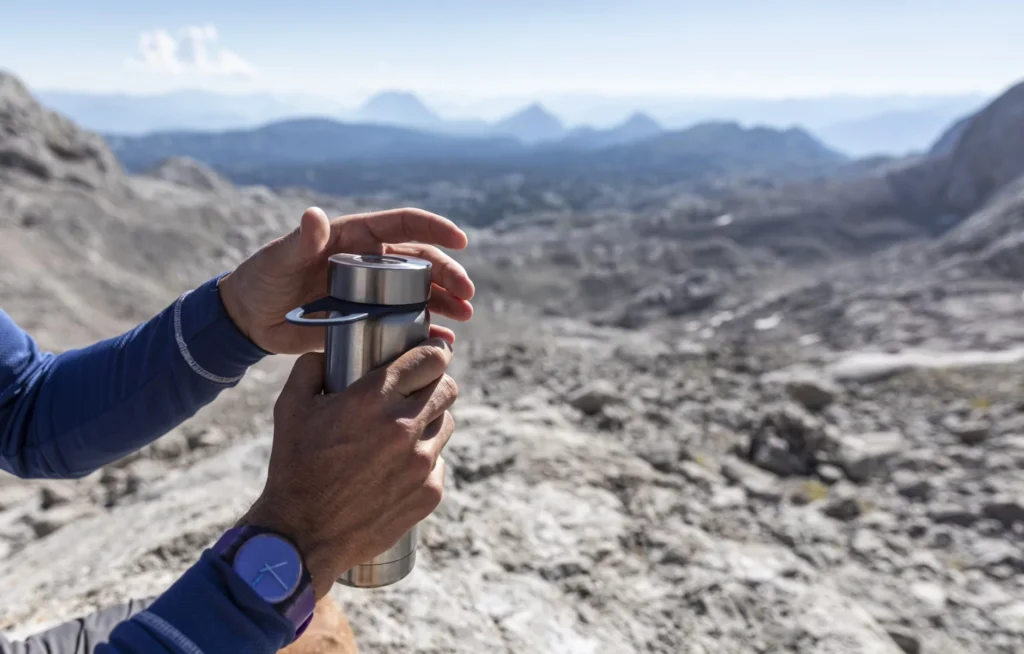As global temperatures continue to rise, heatwaves are becoming more frequent and intense across many regions. While most people are aware of the physical dangers associated with extreme heat—such as dehydration, heatstroke, and sunburn—the psychological effects are often overlooked. However, high temperatures can significantly impact mental wellness, influencing everything from mood and sleep quality to energy levels and cognitive function.
This article aims to raise awareness about the subtle yet significant impact of heat on mental health. By exploring the connection between high temperatures and psychological well-being, we’ll provide practical, expert-backed strategies for staying mentally balanced throughout the hotter months.
Ready to feel more in control during heatwaves? Read on for actionable insights and mental health tips for handling summer stress with more ease.
The Psychological Effects of High Temperatures
Heat-related stress is a very real concern, particularly during prolonged hot spells when the body and brain struggle to regulate internal systems. Excessive heat can contribute to increased anxiety, irritability, sleep disturbances, and even exacerbate existing mental health conditions. In hotter climates or during seasonal peaks, these effects can disrupt daily routines, reduce productivity, and negatively influence emotional balance.
Mood & Irritability
When the body overheats, it goes into a state of physiological stress. This process triggers the release of cortisol, the body’s primary stress hormone. Elevated cortisol levels can heighten feelings of frustration, anxiety, and even aggression—leading to increased irritability during hot weather.
Studies have shown that higher ambient temperatures are linked to elevated mood volatility, reduced patience, and lower emotional regulation. This means minor inconveniences can feel overwhelming, and social interactions may become more tense. For those already prone to mood disorders, summer heat can act as a compounding factor.
Tip: Stay cool to stay calm. Keeping indoor temperatures manageable and practicing mindfulness during peak heat hours can significantly reduce emotional strain.
Sleep Disruption
Quality sleep is essential for maintaining mental clarity and emotional resilience. Unfortunately, high nighttime temperatures often prevent the body from cooling down naturally, which is necessary to initiate deep, restorative sleep. Without this cooling phase, individuals may experience fragmented sleep, insomnia, and overall fatigue.
Poor sleep has a direct impact on mental health, contributing to heightened anxiety, difficulty concentrating, and lowered stress tolerance. Over time, the cumulative effects of sleep deprivation can lead to burnout and emotional exhaustion.
Tip: Optimize your sleeping environment with breathable fabrics, blackout curtains, and cooling fans. Staying hydrated and avoiding electronic screens an hour before bed can also help regulate your body’s internal temperature and circadian rhythm.
Cognitive Strain
Heat stress doesn’t just affect how we feel—it affects how we think. When the body is overheated or dehydrated, the brain’s efficiency drops, leading to mental fog, slower reaction times, poor memory retention, and decreased motivation.
This is particularly problematic for those working or studying in hot environments, as even mild dehydration can impair problem-solving skills and decision-making capacity. The combination of low energy and high temperature often results in reduced productivity and difficulty focusing on tasks.
Tip: Keep a water bottle nearby, take regular breaks in cool spaces, and schedule demanding cognitive tasks during the cooler parts of the day—typically before 11 a.m. or after 6 p.m.
Vulnerability in High-Risk Groups
Certain populations are more vulnerable to the psychological effects of extreme heat. Children, older adults, and individuals with pre-existing mental health conditions or chronic illnesses often have reduced thermoregulation capacity, making them more susceptible to heat-induced stress and emotional imbalances.
Moreover, medications used to treat mental health conditions—such as antipsychotics, antidepressants, and mood stabilizers—can impair the body’s ability to regulate temperature, compounding the risk. This makes proactive heat management especially critical for caregivers and individuals managing long-term mental health conditions.
Tip: If you’re part of or caring for someone in a high-risk group, prioritize regular hydration checks, limit outdoor exposure during peak heat, and consult a healthcare provider about any heat-sensitive medications or symptoms.

Strategies to Stay Mentally Balanced During High-Heat Seasons
Extreme heat can silently strain mental health, yet it often goes unrecognized. From mood swings and sleep disruptions to focus loss and emotional burnout, high temperatures can impact psychological well-being in ways that deserve more attention.
The good news is that you can take back control. By staying hydrated, optimizing your indoor environment, practicing mindfulness, and maintaining social connections, you give your mind the support it needs to weather the heat with calm and clarity.
As climate patterns change, mental wellness strategies must evolve too. Recognizing and responding to heat-related stress is not only wise—it’s essential.
Hydration and Nutrition
Proper hydration is one of the simplest yet most effective ways to protect your mental wellness in hot weather. Even mild dehydration can lead to mood swings, fatigue, and brain fog. Drinking water throughout the day—rather than waiting until you’re thirsty—helps regulate your body temperature and keeps your mind clear.
Choose cooling, water-rich foods like watermelon, cucumber, and citrus fruits. Avoid excessive caffeine and processed snacks, which can dehydrate the body and spike stress levels. Consider setting hydration reminders to maintain consistent intake.
Stay sharp this summer—aim for at least 8 glasses of water a day to support your mental clarity.
Indoor Lifestyle Adjustments
When outside temperatures soar, your indoor environment becomes your wellness sanctuary. Create a cool and calming space using blackout curtains, fans, and proper ventilation. Limiting sensory input—like loud sounds and screen glare—can help reduce heat-related overstimulation.
During peak afternoon hours, slow down your pace and avoid high-effort tasks. Instead, opt for relaxing activities like reading, journaling, or mindful stretching in a shaded space.
Turn your home into a mental wellness retreat—start by decluttering one room for better airflow and peace of mind.
Mindfulness and Mental Grounding Practices
Mindfulness is a powerful tool for managing heat-related anxiety. Simple breathwork, like box breathing or 4-7-8 breathing, can help calm your nervous system and regulate your body’s stress response.
Establish a daily grounding ritual—such as evening journaling, gratitude lists, or guided meditations—to release tension accumulated throughout the day. Aromatherapy with lavender, peppermint, or sandalwood oils can also enhance your indoor environment.
Feeling overwhelmed? Take 3 minutes to breathe deeply—cool your body, calm your mind.
Movement with Intention
Exercise supports mental health, but high-heat seasons require a gentler approach. Switch to low-impact workouts like yoga, stretching, or early morning walks when temperatures are more bearable.
Overexertion in the heat can lead to dizziness and irritability, negating the mood-boosting benefits of exercise. Prioritize consistency over intensity to maintain both physical and mental balance.
Move smart this summer—try 20 minutes of sunrise movement for a clear, energized mind.
Social & Emotional Check-Ins
Heatwaves can isolate people indoors, leading to emotional withdrawal. Staying connected—even through brief texts or voice notes—can help regulate emotions and reduce feelings of loneliness.
Check in with your own emotional state regularly. If you’re feeling low or unmotivated, acknowledge it without judgment. Give yourself permission to rest, and don’t hesitate to reach out for support from loved ones or mental health professionals.
Mental wellness is a team effort—schedule a weekly check-in call with a friend to stay emotionally grounded.

Sustainable Wellness Through the Seasons
Long-term mental health requires more than seasonal self-care—it demands sustainable, consistent practices that evolve with the climate. Rather than seeing wellness as a reactive response to heatwaves, shift your perspective toward proactive mental maintenance year-round.
Small, daily rituals—like mindful hydration, short morning walks, or cooling breathwork—are more effective when practiced consistently. These habits build emotional resilience, improve sleep cycles, and stabilize mood, even as external conditions fluctuate.
Heat doesn’t have to derail your mental clarity. By adapting routines early in the season, you protect your nervous system from cumulative stress. Preventive mental health care is as essential as physical care in high-heat climates.





















